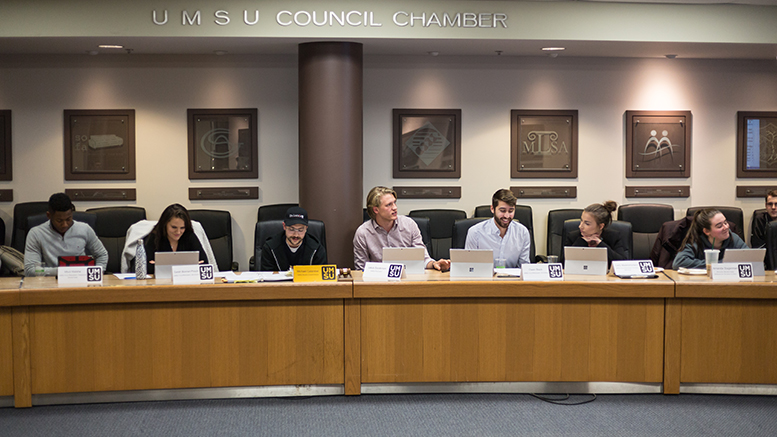UMSU funding for campus community groups is changing beginning May 1.
The new community initiative funding (CIF) policy was passed at last week’s UMSU meeting after being postponed in early January.
Under the previous funding policy, community groups were funded out of a restricted levy which, aside from being indexed to inflation, could only be increased through a referendum. If a new community group were created, the funds available to each community group would decrease unless students approved a fee increase.
Under the new CIF policy, community groups will be funded from the governance budget, the same as student groups, allowing UMSU more control over the amount available.
There are currently four community groups on campus — the Womyn’s Centre, the Student Accessibility Centre, the University of Manitoba Indigenous Students’ Association and Rainbow Pride Mosaic. These differ from student groups, such as the Muslim Student Association, which receive funds from a different pool.
After the new policy comes into effect, communities will see an increase in funding, and communities will decide where the funding goes.
Elected representatives from student communities will be responsible for leading regular town hall meetings where community members can vote on funding requests, whether or not they are members of campus student groups.
The motion was not passed unanimously — mature students’ representative Sharlene MacCoy abstained.
Several board members voiced concerns about the policy, largely focused on the concern that low community participation or low attendance at town halls could affect how funding is allocated.
Accessibility community representative Ashlean Sterling said low membership rates within the accessibility centre may affect how students living with disabilities will receive this funding.
“I don’t know how many people we could form to form a community assembly,” she said.
“And as well that there are a lot of mental health initiatives that are happening on campus — which I think is great — but if it ends up being that they are taking all of the money from [the funds] for all of the disabled community, and because there aren’t as many accessibility […] initiatives as there are mental health initiatives — I’m just worried.”
UMSU president Jakob Sanderson said this was a “very valid concern.”
“Hopefully, part of that is just due to how new the accessibility centre is and hopefully it has a lot of room to grow,” he said.
“But I know there is a lot of structural challenges you’re facing as well.”
Sanderson also said a plan could be put in place that would both provide support to mental health resources, but also allocate a certain amount of accessibility community funding “for students living with other disabilities.”
Female co-president of the University of Manitoba Indigenous Students’ Association (UMISA) Alannah Mckay expressed similar concerns and asked what the protocol would be if community members were not attending town halls.
Sanderson said this issue could be worked around if it came to that.
“If that’s an issue that you’re having, that there’s been requests submitted, but then no one shows up to vote on it, you could bring that to [community groups co-ordinator] Mubo [Ilelaboye] and to the services staff, and then they could bring that to the member services committee to make sure those events still are funded,” he said.
Former LGBTTQ* representative Eun-Bi Kang said she was concerned low engagement from community groups could cause misappropriation of community funding.
“What if it backfires? What if nobody responds?” Kang asked.
Sanderson said he hoped the reallocation of community funding would inspire higher engagement from community groups.
“I think the hope would be that this would help engage some people.”



